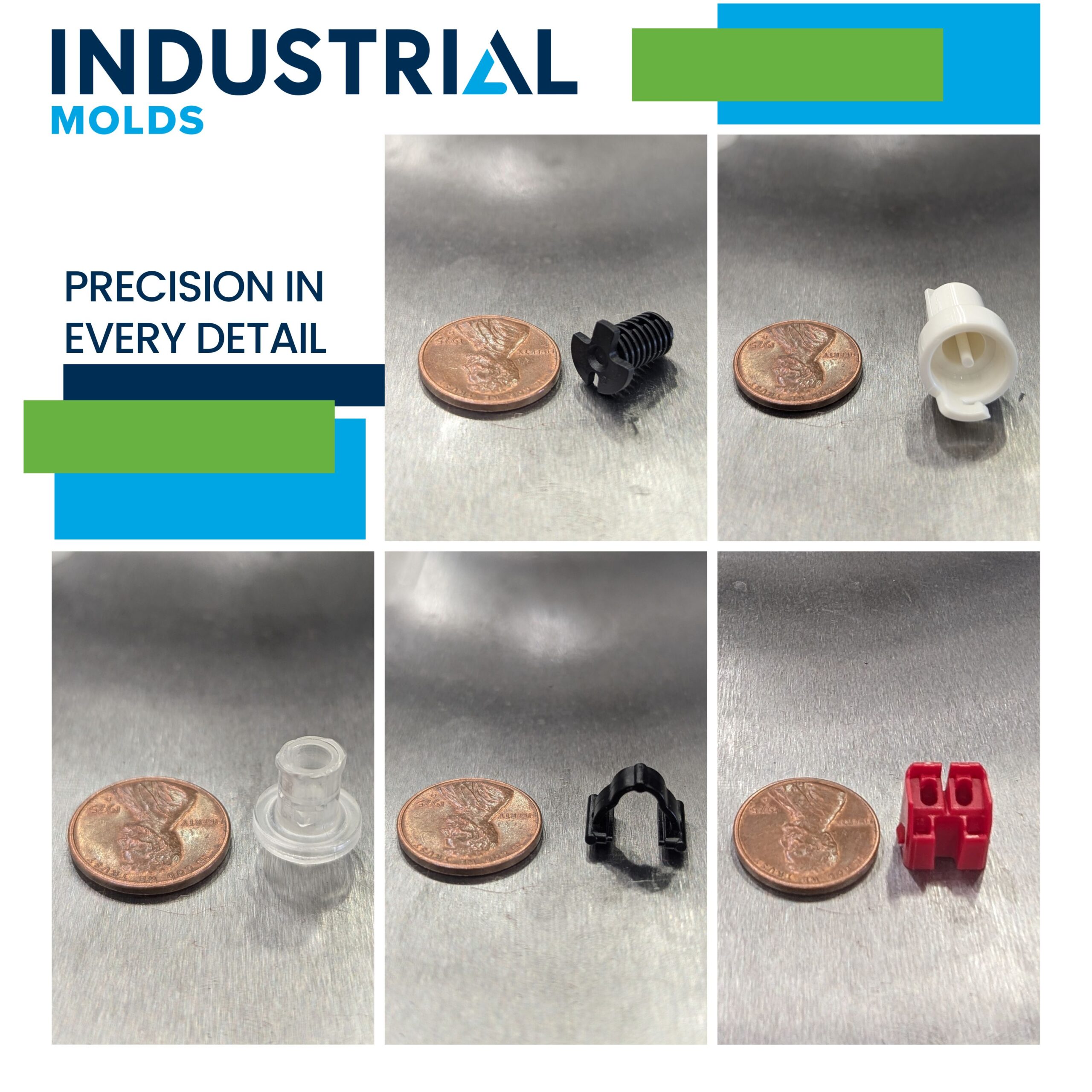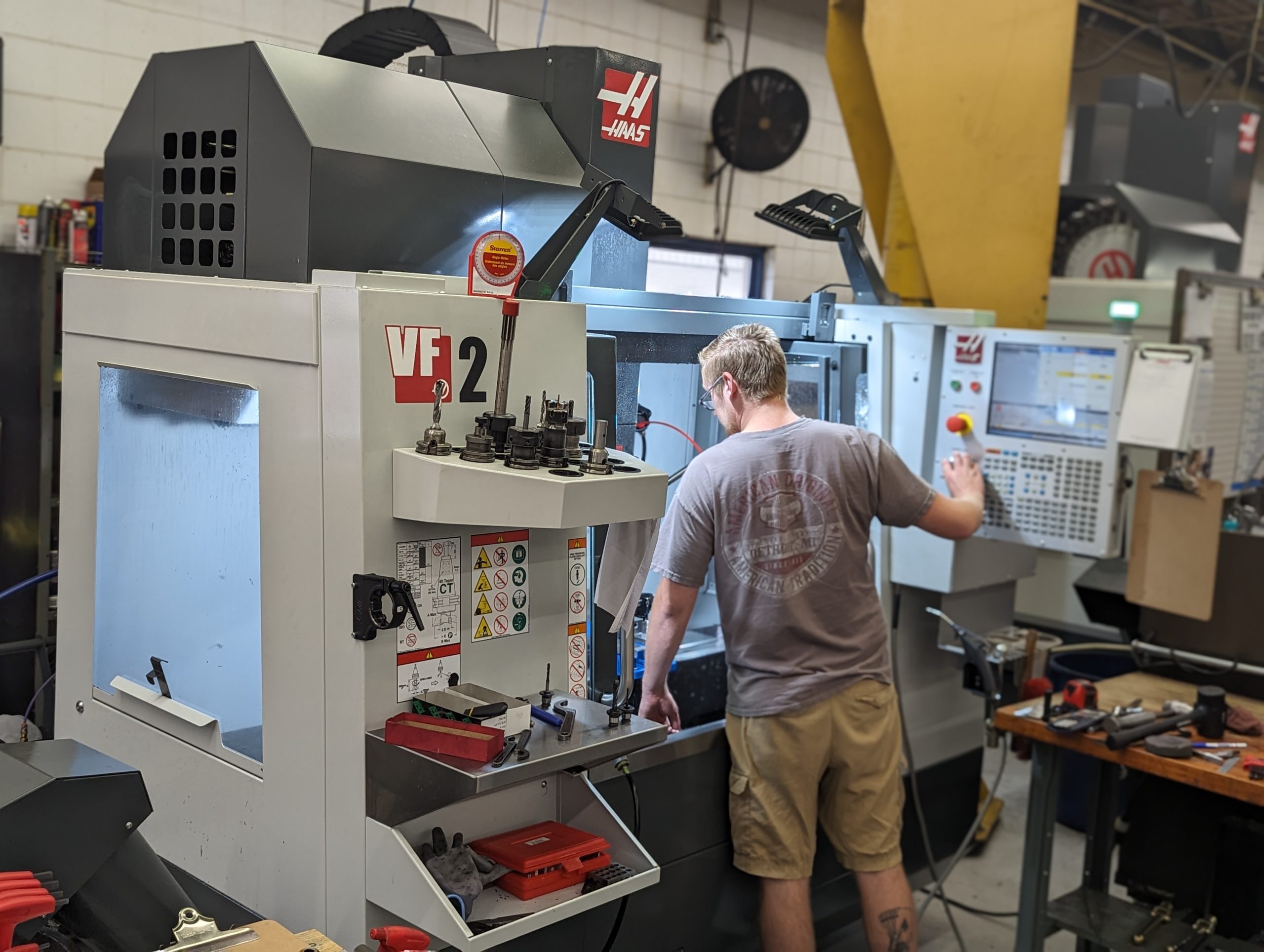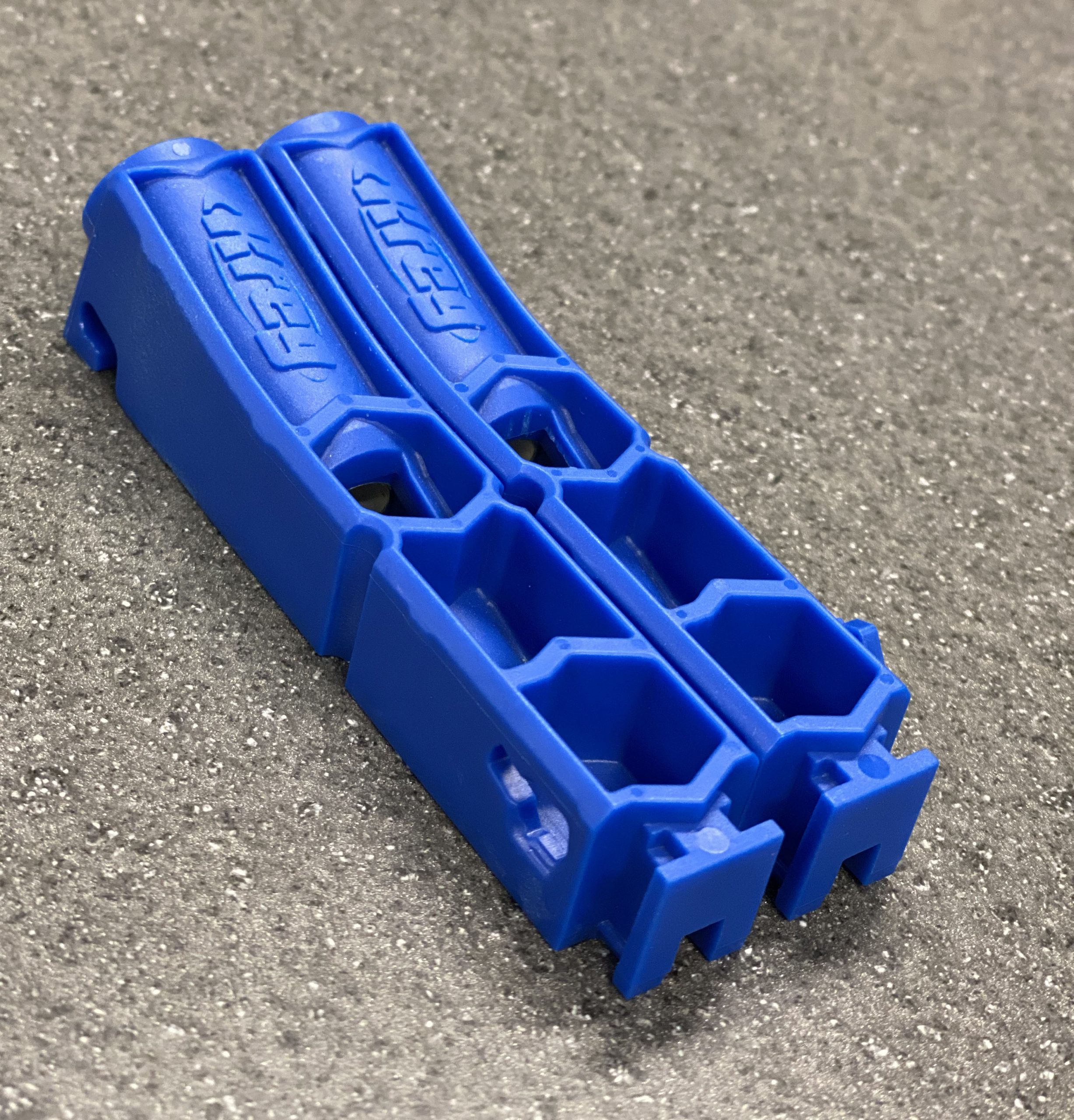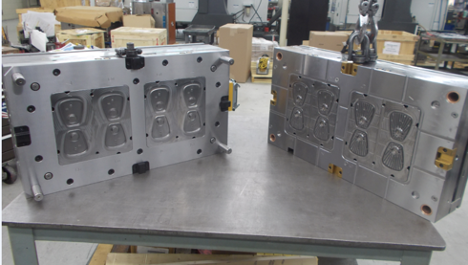Precision Tooling for Small, Detailed Parts

Featuring Randy Hanson, Director of Engineering at Industrial Mold
Overview:
Industrial Molds, under the guidance of Director of Engineering Randy Hanson, has established itself as a leader in crafting precision tooling for small and intricate parts. With a focus on efficiency, accuracy, and innovation, Industrial Molds consistently meets the complex needs of industries that require exceptional detail and reliability in manufacturing small components. This case study explores the engineering processes, technical capabilities, and collaborative approach that enable Industrial Molds to excel in producing high quality precision tooling.
Key Engineering Challenges
Designing and building precision tooling for small, detailed parts comes with unique challenges. According to Hanson, “With small precision parts, we need to design molds that are manufacturable while being adjustable so we are able to dimensionally groom them.” The cooling process also plays a critical role, as they work to ensure all cavities perform uniformly throughout the entire production run. Industrial Molds tackles these challenges by designing molds that allow adjustments, ensuring consistent quality across every part produced.
Materials for Precision Tools:
For small, precise molds, Industrial Molds primarily uses 420SS or hardened steels such as H13 or S7, selected for their durability and resistance to wear. By choosing the right material for each project, they ensure the tools withstand production demands without compromising on accuracy.
Technical Capabilities
Precision and Accuracy:
Industrial Molds has achieved remarkable levels of precision, with tooling accuracy reaching tolerances within 0.0005 inches when necessary. This level of detail ensures that even the smallest components meet strict specifications, reducing variability and maintaining consistent quality.
Advanced Machinery and Technology:
Industrial Molds commitment to precision is supported by a suite of advanced equipment. Their Makino high-speed cutting cell and Sodick EDM cell represent some of the most advanced machinery available. “We also have several layers of in-process inspection that guarantee the steel is where it was designed to be,” Hanson notes, underscoring their commitment to precision at every stage of the process.
Longevity and Durability of Tools:
Industrial Molds prioritizes durability by using only the highest quality steels and designing critical areas to be replaceable in case of wear or damage. This attention to longevity not only extends the tool life but also contributes to long-term cost savings for clients.
Efficiency Gains:
By building molds that run faster and offer a larger processing window, Industrial Mold helps clients reduce scrap rates and minimize production risks. This optimization directly translates to reduced manufacturing costs and more efficient operations.
Innovations and Differentiation
Industrial Mold stands out in the precision tooling sector through its commitment to automation. “Everything we do is automated. We run lights out, allowing our robotic cells to operate unattended,” Hanson explains. This level of automation is achieved using an Erowa pallet system with RFID chips, enhancing repeatability and reliability across production runs. By embracing these innovations, Industrial Mold sets a high standard for consistency and precision.
Collaboration and Problem-Solving
Industrial Mold takes a proactive approach to collaboration, engaging clients early in the process to identify potential challenges. During the quoting and Design for Manufacturability (DFM) phase, Hanson and his team work closely with clients to identify critical areas and adjust designs for optimal cost-effectiveness and performance. This cooperative approach ensures that every mold is tailored to meet specific client needs efficiently.
Handling Challenges Systematically:
Industrial Molds follows a structured Advanced Quality Planning (AQP) process, ensuring seamless communication and documentation at every stage. “Our systems are designed to document and communicate effectively, so as things come up, we handle them systematically,” Hanson explains. This methodical approach allows the team to address unexpected issues efficiently, keeping projects on track and maintaining high standards of quality.
Conclusion
The Industrial Molds team exemplifies excellence in engineering precision tooling for small, detailed parts. Through a combination of advanced technology, quality materials, automation, and client collaboration, Industrial Molds consistently delivers high-performance, cost-effective tooling solutions. Industrial Molds understands the importance of accuracy, and systematic problem-solving in achieving precision tooling that meets the demands of modern manufacturing.




